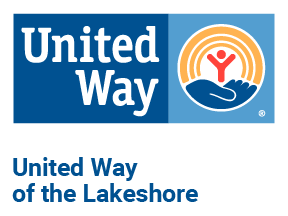 The Kids Count in Michigan Data Book 2016 released on March 21st echoes concerns and issues that have been bringing national attention to Michigan. From the Flint water crisis and unsafe conditions in Detroit Public Schools to the struggles of our kids right here on the Lakeshore, it is clear that some significant policy changes are needed in our state to better serve our children and their families.
The Kids Count in Michigan Data Book 2016 released on March 21st echoes concerns and issues that have been bringing national attention to Michigan. From the Flint water crisis and unsafe conditions in Detroit Public Schools to the struggles of our kids right here on the Lakeshore, it is clear that some significant policy changes are needed in our state to better serve our children and their families.
The child poverty rate remains unacceptably high statewide and particularly in the three counties served by United Way of the Lakeshore. Muskegon and Oceana counties rank 80th and 77th respectively (out of 83 counties), with both counties seeing child poverty rates increase by 19% since 2006. Newaygo County ranked higher (59th) in child well-being, but saw an increase in child poverty of 29% over the last decade. Without addressing poverty and ensuring parents have access to economic opportunities to achieve financial security, child outcomes in health, education and welfare will not improve. We know from extensive research and conversations with local working families that over 40% of our community needs help meeting their basic needs and serious gaps exist in providing assistance. For families who are Asset Limited, Income Constrained, Employed, also known as ALICE, an unexpected expense like a vehicle repair or an illness causing missed work can lead to crisis that seriously affects child well-being.
The United Way of the Lakeshore has adopted a bold goal of helping 10,000 more working families meet their basic needs by 2025, through impact strategies in the areas of education, health, and income stability. The key to lifting families and children out of poverty and beyond the ALICE threshold is found in programs that United Way of the Lakeshore partners are focused on in these areas.
While our community has made great strides in areas like graduation rates, and local initiatives such as Muskegon Promise will surely impact future rankings, there is still much more work to be done to continue to ensure our community and its children thrive. It is vital that policymakers pursue more two-generation strategies that help parents find and keep work so they can provide for their families and raise safe, healthy and successful kids.
Click here to see the report.

